FILMMAKER and screenwriter Maaria Sayed’s debut novel From Pashas to Pokemon is a coming-of-age story set across different cities - from Mumbai to London - about a girl learning to understand, accept and love.
It is also a sharp commentary on cross-cultural clashes and the transformations in India over 20 years, as the book charts the journey of a young Muslim girl towards adulthood.
Eastern Eye caught up with the accomplished author (who received a positive endorsement from legendary writer Gulzar) as she dwells on her novel, creativity, inspiration and getting a literary heavyweight to write the forward.
What first connected you to creativity?
I would prefer to say that all children are creative, but we lose our creativity as we grow older. For me, it was painting and theatre as a child that quickly evolved into writing. From the age of five I have been 'creative' and simply never stopped.
What inspired you to write a novel?
Some feelings need words, and I was at a moment in life where I was processing my childhood, teenage years and the 1990s. I had just moved to a tiny mountain village in Italy, as I had got married the year before. Suddenly, I was reflecting a lot. I felt I needed to create a way to record some feelings and create situations where I could capture what I was not able to explore.
Tell us about your debut novel From Pashas to Pokemon.
Essentially, you follow Aisha's feelings, stammers, insecurities, judgements, and innocence from childhood until the moment she considers herself a woman. One thing I tried to do by writing in the first person is to allow the reader to feel the journey of this girl without a filter.
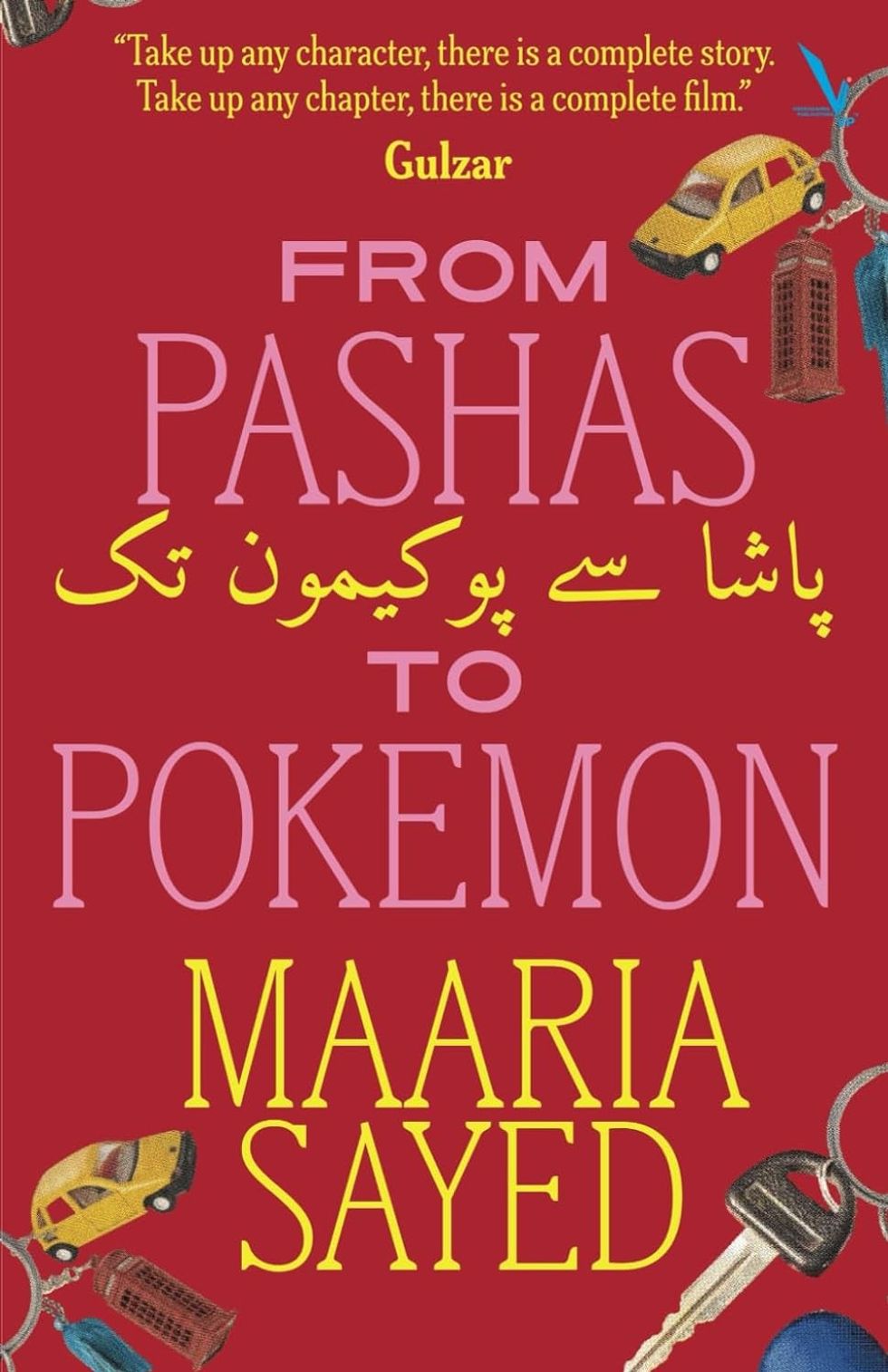
Is it based on true incidents and characters?
It is a work of fiction, but certain incidents did happen to me, and I have lived in these places such as Mumbai, Delhi and London. I do not talk about places unless I have spent enough time in them. I believe there is a vibe that one needs to catch because reality is subjective. It is a mix of memories and sensations.
Who are you hoping connects with this book?
Women, girls who are growing up, those who are nostalgic about the 1990s and those who have been through their educational years in London. Of course, those who are in any way connected to Muslim and south Asian culture will understand this book, without really making any effort, because we follow a girl who is from this culture.
What is your own favourite part of this book?
I cannot possibly pick a favourite. I think every episode is precious because it makes Aisha who she is. So, I celebrate the embarrassments, family love, humour, heartbreak and all of it.
How did it feel when Gulzar agreed to write the forward of your book?
I was elated he agreed to read my book - but when he wrote the foreword, I was not just overwhelmed, but incredibly humbled.
What kind of books do you enjoy reading?
I love reading a variety of books. My favourite kind is literary fiction. I enjoy the perspective of women and coloured writers. I guess, I identify more. But, sometimes, I relax by reading writers who explore non-fiction too, especially books related to history, politics, and science. Sometimes philosophy and religion too. I love a good book.
What can we expect next from you?
A second novel, exploring new themes, ideas and worlds. But I will stick to the Indian Muslim woman with her experiences in the west, I guess. It is what I understand.
What inspires you?
Every kind of art, but real-life incidents and observations spark my feelings and push me to actually write.
Why should we all pick up your debut novel?
I do not think you would find another recent work about an Indian Muslim girl who gives you an insight into her innermost thoughts, feelings and fears without a filter, all the way from Mumbai to London and back.
Twitter: @maariasayed89 & Instagram: @maariasayed






 Lunchbox is a powerful one-woman show that tackles themes of identity, race, bullying and belongingInstagram/ lubnakerr
Lunchbox is a powerful one-woman show that tackles themes of identity, race, bullying and belongingInstagram/ lubnakerr She says, ''do not assume you know what is going on in people’s lives behind closed doors''Instagram/ lubnakerr
She says, ''do not assume you know what is going on in people’s lives behind closed doors''Instagram/ lubnakerr








 He says "immigrants are the lifeblood of this country"Instagram/ itsmetawseef
He says "immigrants are the lifeblood of this country"Instagram/ itsmetawseef This book is, in a way, a love letter to how they raised meInstagram/ itsmetawseef
This book is, in a way, a love letter to how they raised meInstagram/ itsmetawseef
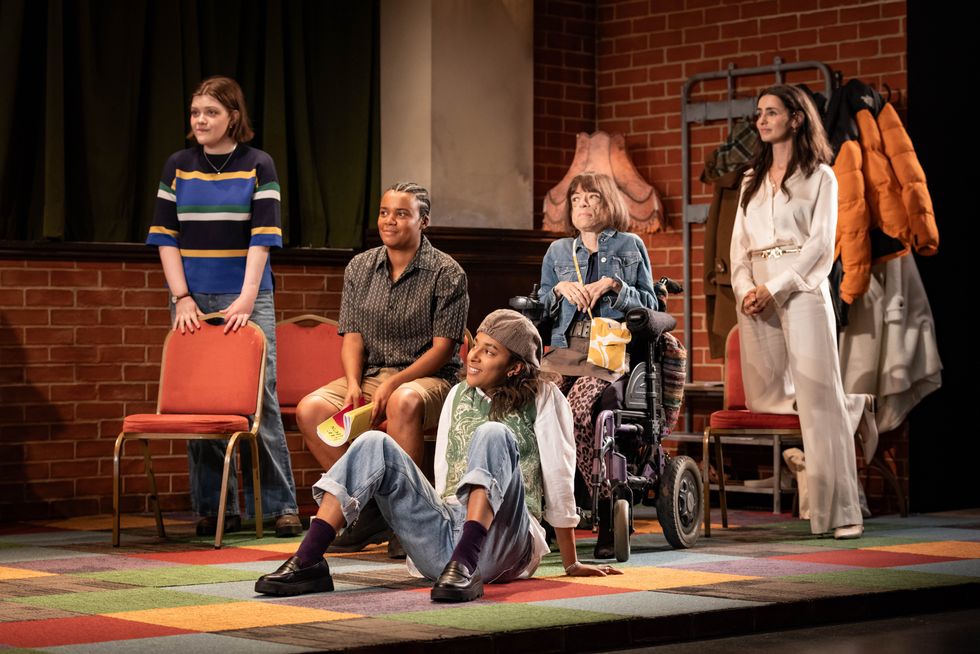 The crew of The Ministry of Lesbian Affairs
The crew of The Ministry of Lesbian Affairs
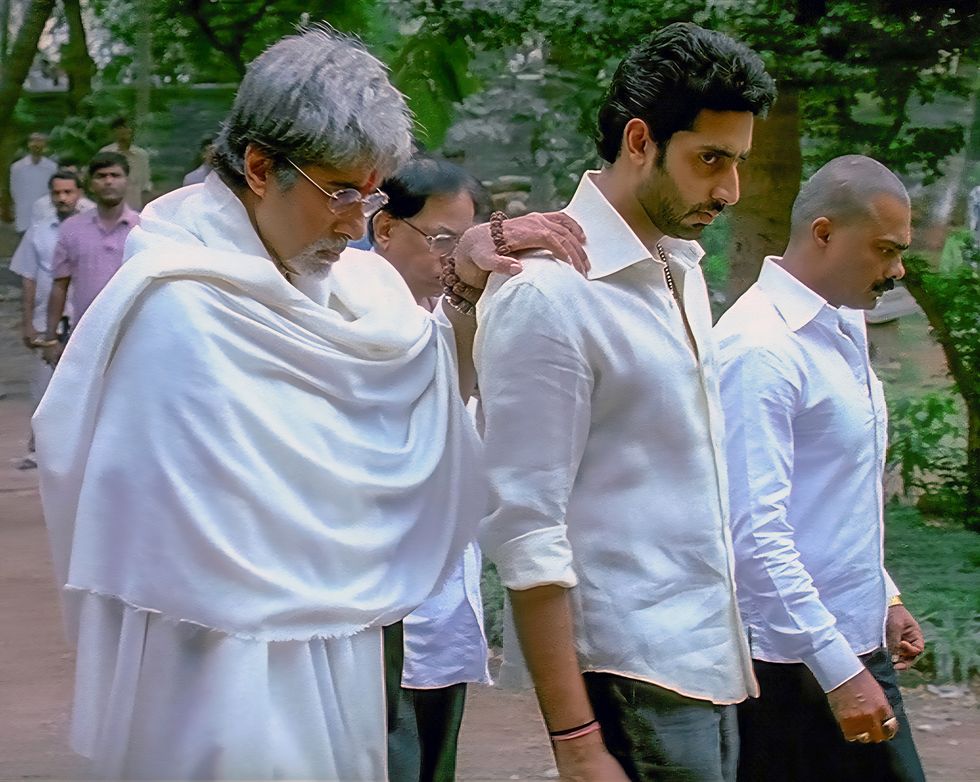 A still from Sarkar, inspired by 'The Godfather' and rooted in Indian politicsIndia Glitz
A still from Sarkar, inspired by 'The Godfather' and rooted in Indian politicsIndia Glitz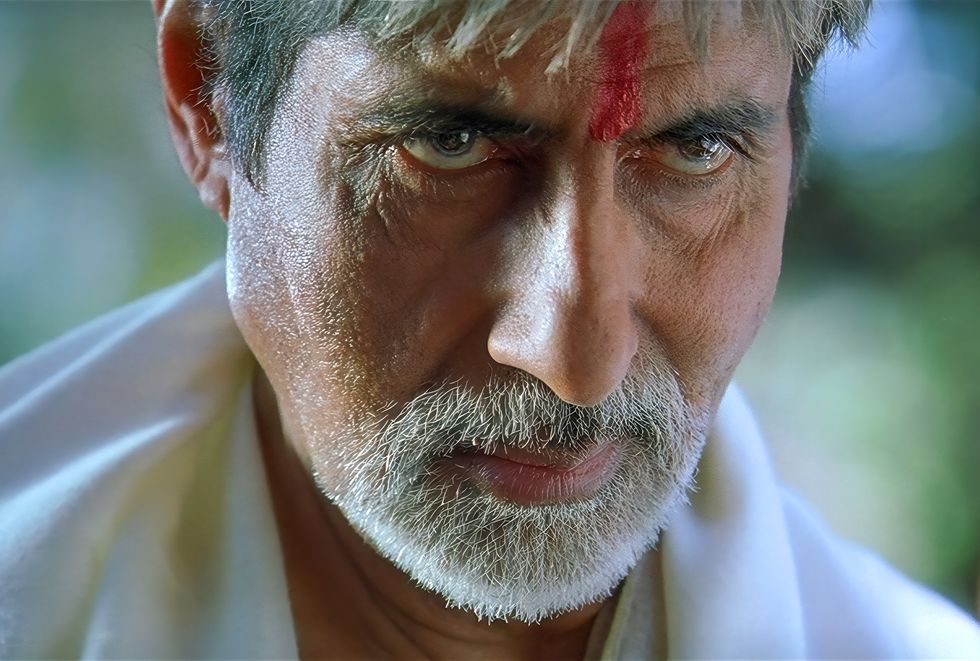 Sarkar became a landmark gangster film in Indian cinemaIndia Glitz
Sarkar became a landmark gangster film in Indian cinemaIndia Glitz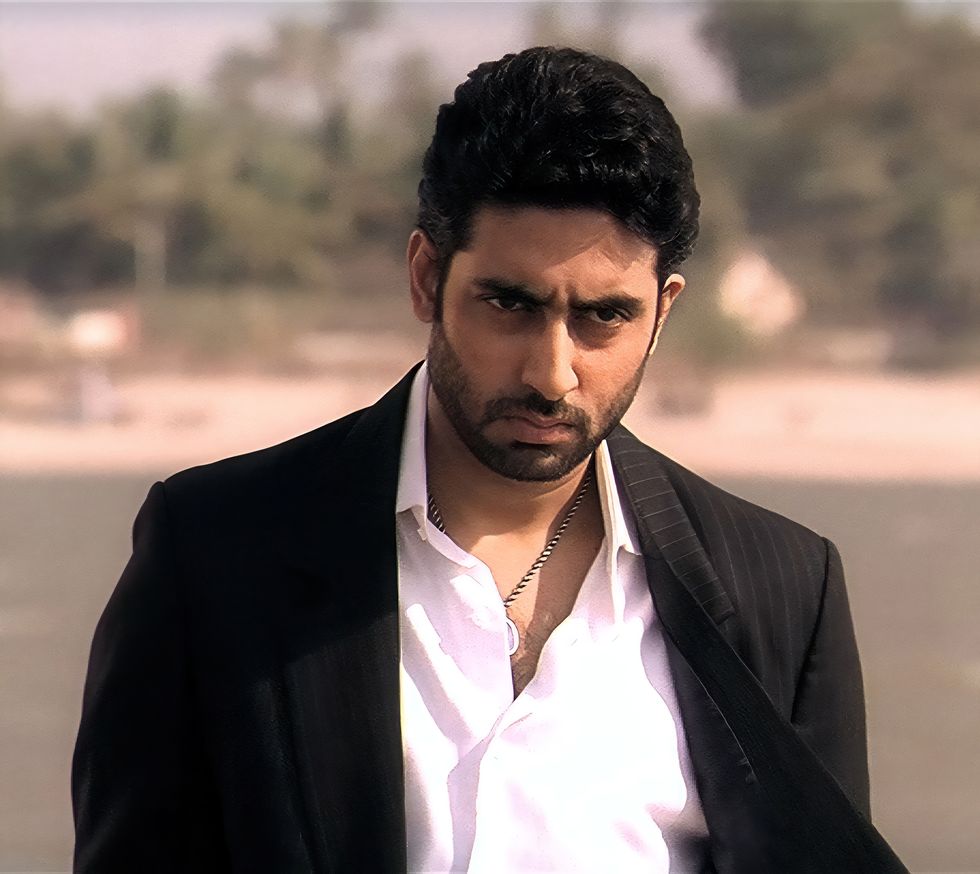 The film introduced a uniquely Indian take on the mafia genreRotten Tomatoes
The film introduced a uniquely Indian take on the mafia genreRotten Tomatoes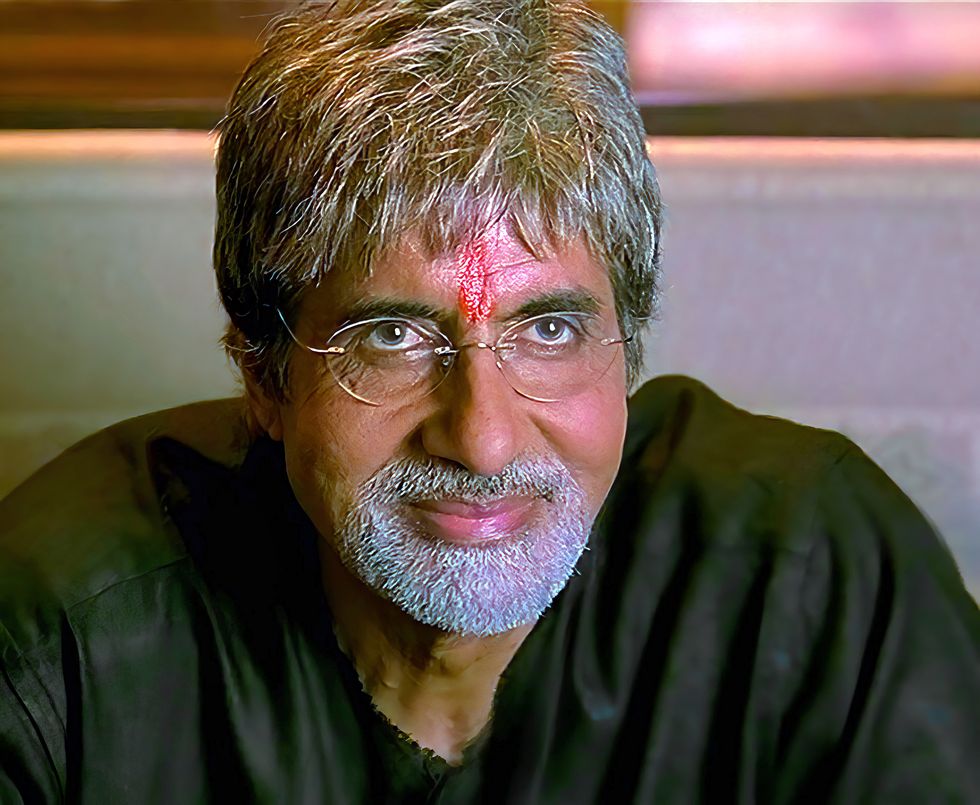 Set in Mumbai, Sarkar portrayed the dark world of parallel justiceRotten Tomatoes
Set in Mumbai, Sarkar portrayed the dark world of parallel justiceRotten Tomatoes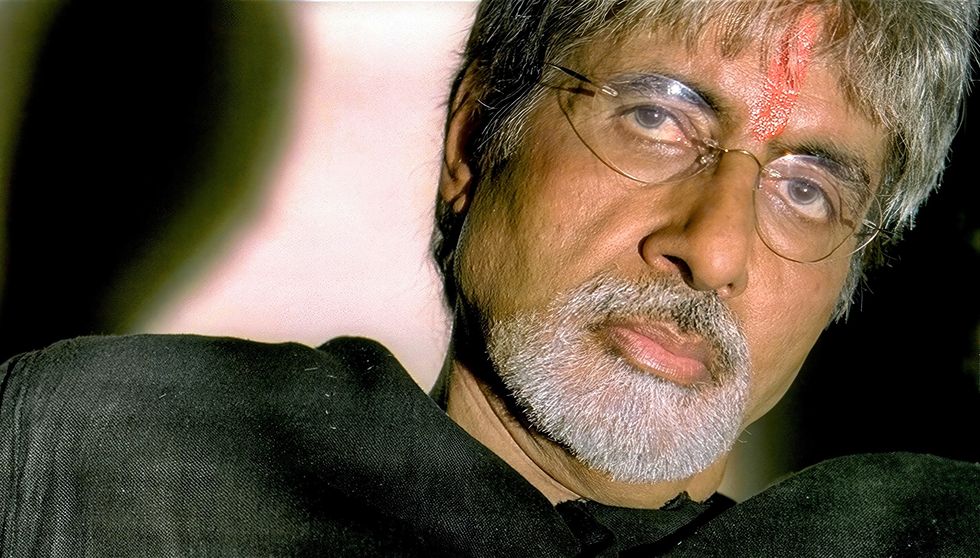 Ram Gopal Varma’s Sarkar marked 20 years of influence and acclaimIMDb
Ram Gopal Varma’s Sarkar marked 20 years of influence and acclaimIMDb
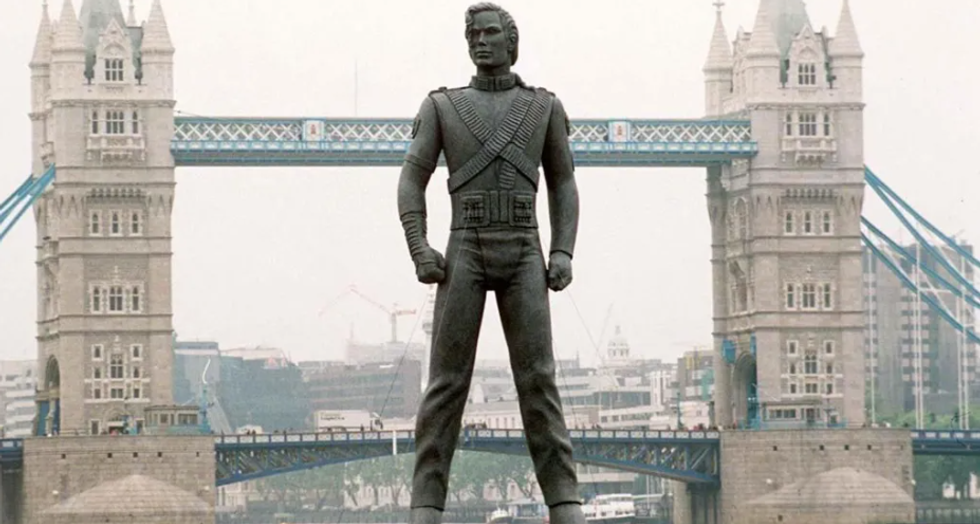 The statues were the product of a transatlantic effortGetty Iamges
The statues were the product of a transatlantic effortGetty Iamges